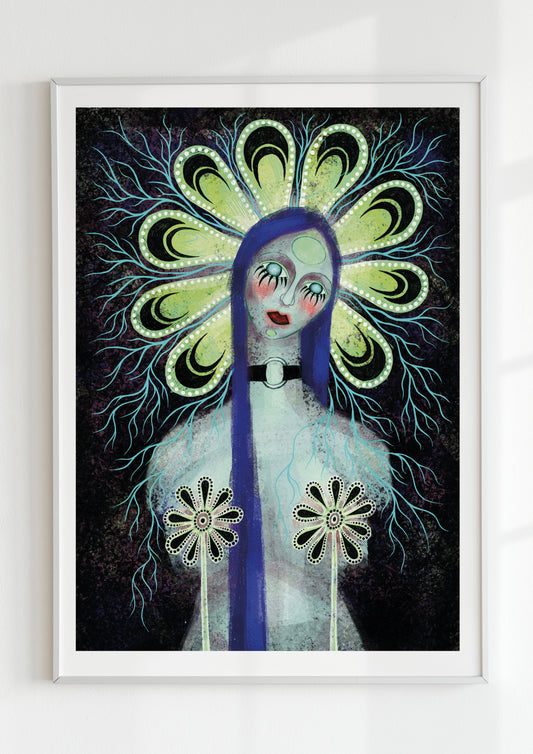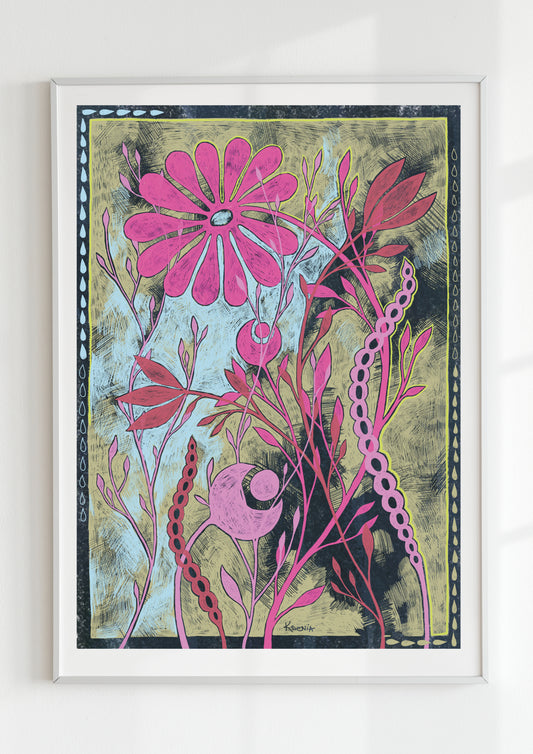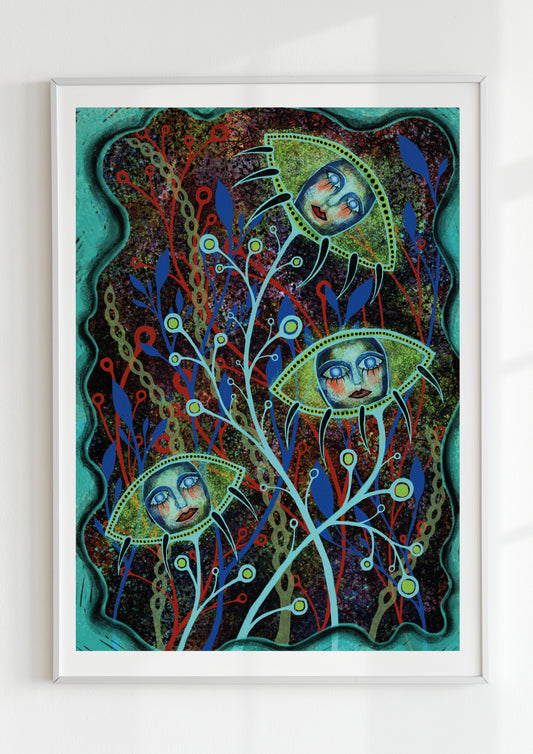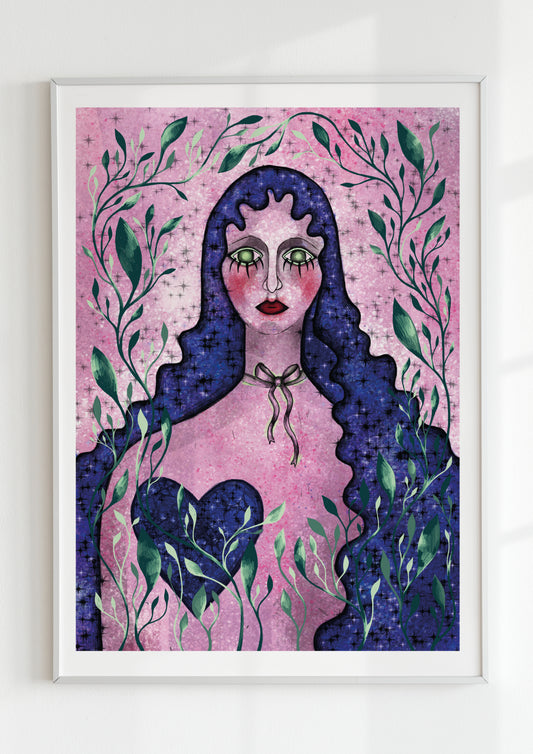Pink, a delicate fusion of red’s passion and white’s purity, holds a unique place in the world of interior design. Long associated with tenderness, femininity, love, and tranquility, pink has evolved from a traditionally “girlish” color into a versatile design element that brings warmth, softness, and emotional balance into any home.
Whether you’re decorating a cozy reading nook or curating a calming bedroom retreat, understanding the psychological influence of pink can help you choose art that aligns with your emotional and aesthetic goals.
The Meaning of Pink in Colour Psychology
Pink symbolizes affection, nurturing, and inner peace. In psychological terms, pink has been found to:
Lower feelings of aggression
Foster feelings of compassion and calm
Encourage relaxation and emotional openness
It’s often used in wellness and healing spaces due to its ability to reduce stress and evoke feelings of safety and comfort.

See pink wall art print "DEVOTION SYMBOL"
There are many shades of pink—each with a slightly different mood:
Pale pink: innocence, tranquility, romantic nostalgia
Blush/rose: elegance, modern femininity, harmony
Fuchsia/hot pink: energy, vibrancy, creative passion
How to Use Pink in Home Decor
Soft Accents in Calm Spaces
Blush or pastel pinks work beautifully in bedrooms and bathrooms to encourage softness and calm. Complement pink with neutral tones like ivory, beige, or warm greys for a serene palette.
Statement Walls or Furniture
A bold pink accent wall or velvet armchair in rose or raspberry adds character and vibrancy. Use complementary colors like olive green or navy blue to anchor the palette.
Pink in Art Prints
Abstract or symbolic artworks with pink elements can shift the energy of a space toward comfort and love. Pink also works beautifully in folk and mythical-inspired art, softening bold visuals.
Why Choose Pink Artwork for Your Home

See pink floral wall art "VASE"
Pink artwork can enhance emotional well-being and make your home feel more welcoming. It’s especially effective in:
Children’s rooms: for comfort and joy
Living rooms: to encourage warmth and hospitality
Creative spaces: for inspiration and emotional connection




